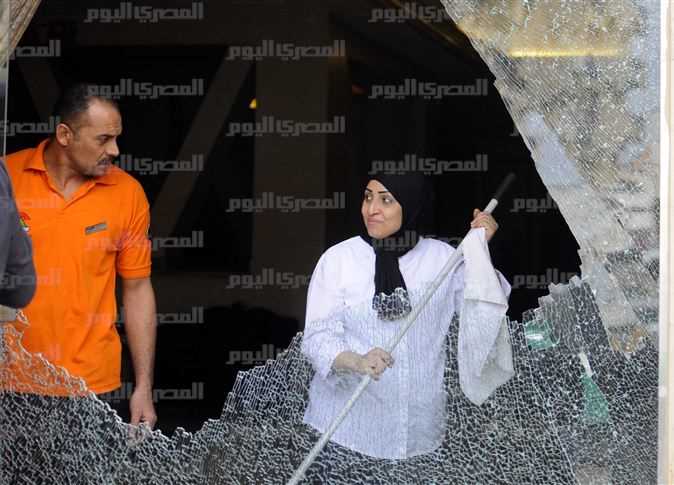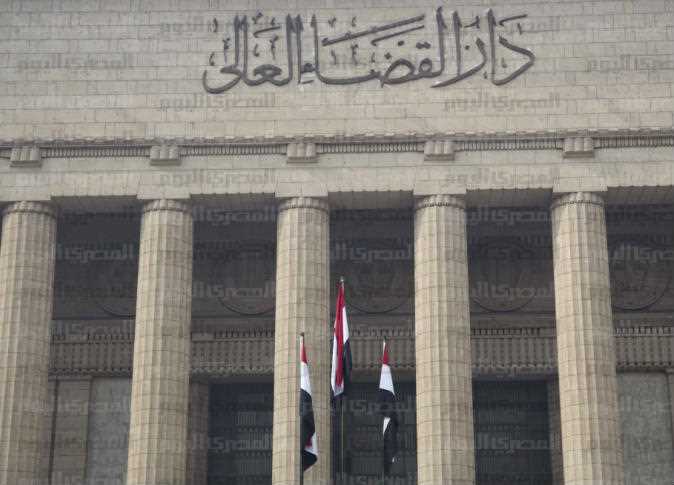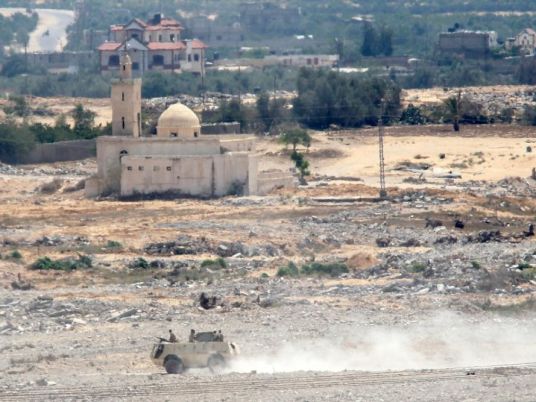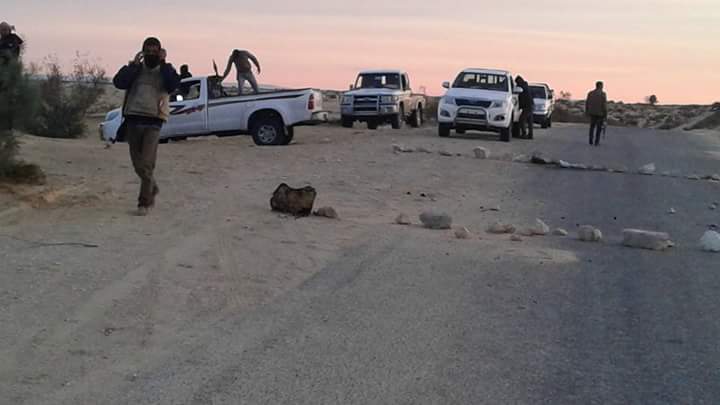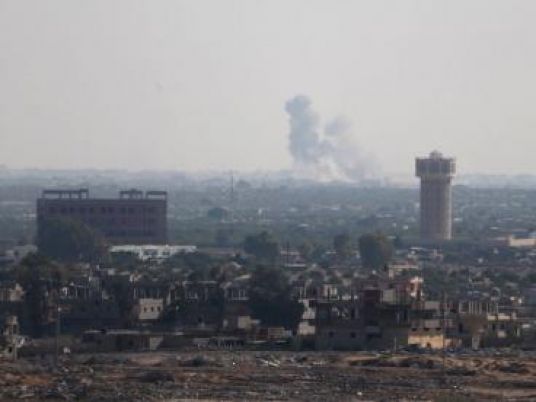
By Ahmed Mohamed Hassan and Yara Bayoumy
One afternoon in mid-April, a Bedouin woman screamed inside her single-storey, stone house in the Egyptian village of al-Taweela. The screams were so loud that neighbours took notice, said Ali Abu-Freij, a resident in the northern Sinai village. He and other locals saw four men in masks speed away from the house in a Toyota Land Cruiser.
"When we went to the home to see what happened, we were surprised to find the husband tied up and saying that armed men had kidnapped his wife," said Abu-Freij.
The kidnappers – who had identified themselves as Sinai Province, the most lethal Islamist group in Egypt – vanished. But the following day, villagers found the 32-year-old woman's body nearby "with two gunshots in the head and a cut through her neck," said Abu-Freij. Two local tribal leaders said she had been raped. One of them, Mousa al-Delh, said a note found with the body said the woman had been killed because she had cooperated with the Egyptian army.
The kidnapping and murder were barely noted at the time and were not widely reported by Egypt's press. But the Egyptian army hopes the incident may prove to be a turning point in its struggle against Islamist extremists in the region. More than a dozen tribal leaders, outraged by the attack and other brutalities, now say they will join the battle against the militants, despite years of feeling neglected by the central government.
The Egyptian army needs all the help it can get. Sinai Province, the group behind the abduction of the Bedouin woman, has allied itself to the much bigger Islamic State, based in Syria and Iraq, and has carried out a series of increasingly bold raids. On July 1 militants carried out a coordinated attack against security forces that led to the fiercest fighting in the area in decades. Seventeen soldiers and more than 100 militants were killed, according to the official death toll.
Until now, the Bedouin tribes in the northern Sinai region have kept out of the fight, even as the militant groups have recruited from within their community. But the April attack was a profound insult, tribal leaders say. The militants violated a strict honour code, meaning the tribes could no longer stay silent. "For it to reach a point where they kidnap … and rape her and the next day they behead her and put a note saying she was cooperating with the army … it's absolutely barbaric," said Delh, who is from the Tarabeen tribe, one of the region's largest.
The government is struggling to maintain security, especially in the Sinai. Egyptian officials say some of the country's most dangerous militants established a foothold there during the rule of former President Mohamed Mursi of the Muslim Brotherhood.
Since seizing power from the freely-elected Mursi in the summer of 2013, following mass protests against his rule, President Abdel Fattah al-Sisi has taken on the Islamist militants. The campaign has left hundreds of police and soldiers dead. Two weeks ago, the country's top prosecutor was assassinated by a car bomb in Cairo in an attack that bore all the hallmarks of a militant operation.
CHECKPOINT ATTACKS
Whether the Bedouin tribes will be enough to give the army an edge remains unclear. The tribes' local knowledge and influence will help as will the extra muscle they offer. Delh estimated the number of tribal fighters at around 300.
At the same time, tribal allegiances, business interests, and lingering resentment over military tactics often seen as heavy-handed will complicate efforts to form any new fighting force.
There's also the question of numbers. Delh puts the total number of militants at 2,000, while another tribal leader put the figure at closer to 600.
The militants are growing bolder. The fighting in northern Sinai, which followed a militant attack on military checkpoints, was the longest and fiercest fighting in the region since the army fought Israel in the 1973 war.
Ahmed Abu-Ghazal, a lorry driver and resident of Sheikh Zuweid village, saw one attack on a military checkpoint. "I was surprised by a massive explosion and then saw dozens of militants surrounding the checkpoint and opening fire," he said. He doubled back to take an alternative route, only to see the same thing at a different checkpoint. "This was the first time I see more gunmen than troops … I later saw the militants pass by me shouting 'Allahu Akbar' and raising their weapons in victory," he told Reuters by telephone.
Senior tribal figure Sheikh Salem Abu-Agayed said that the militants have become highly skilled in evading capture and are always on the move. He said 11 groups of 15 to 20 fighters in Land Cruisers were involved in the July operation. The militants had clearly studied their targets, firing RPGs at checkpoints on elevated ground, and deploying car bombs at checkpoints in empty desert spaces.
"According to witnesses, each militant cell attacked the checkpoint closest to it … and then they disappeared to different locations," he said. "Some of the militants hide in people's homes by threatening them and others hide in homes that connect to tunnels full of food and weapons supplies."
Abu-Ghazal, the lorry driver, said some Sheikh Zuweid residents were fed up of the fighting and were fleeing. "Some families don't have the ability to wait for death anymore, whether by the militants or the army."
The military spokesman said that from July 1 to 11, the army had killed 252 militants. A senior security source in Sinai said: "This was what we were hoping for, that they appear before us. We had a big chance to eliminate every one of them, except they escaped and hid in civilian areas. But these attacks uncovered the militants and we were able to surround their hiding spots."
INTELLIGENCE HELP
For many years, Cairo governments and Sinai's Bedouin tribes have viewed each other with suspicion.
The government has long accused the tribes of running a haven for smuggling and militancy. The Bedouin, in turn, have complained that they are disenfranchised and cut out of the jobs and money generated by the tourist industry in southern Sinai. While some tribal leaders have business interests in industries such as cement, most Bedouins farm small plots of parched land. Some have turned to smuggling goods, weapons and migrants across Sinai's border with Israel and Gaza. Others, angry with the state and with collateral damage from airstrikes, have embraced militant Islam.
Overcoming those problems and winning the support of the tribes could prove crucial to the goverment's efforts to contain the militants.
Though the Egyptian army is the largest in the Arab world, it is mainly a conventional force. In Sinai, it faces a highly mobile enemy that is more familiar with the terrain and better at guerrilla warfare.
One senior Egyptian security official told Reuters that while the state has sophisticated weapons and greater numbers, the enemy is still regularly inflicting casualties. A new strategy was needed, he said, though he declined to elaborate on any plan.
Wearing a beige baseball cap and sunglasses, tribal leader Delh, speaking to Reuters in Cairo, explained why the tribes decided to step in. The militants, Delh said, threatened the tribes' livelihoods and business interests, as well as their families and traditions.
He likened the militants to takfiris, or hardline Sunni Muslims who declare other Muslims infidels. "I've sat with these takfiris and know how they think. They consider the tribe to be the same as apostates … so your money and women are permissible (targets)." That, he said, was unreasonable.
The abduction of the Bedouin woman was one of several recent incidents. Militants also beheaded a tribesman who refused to distribute leaflets warning the Tarabeen against cooperating with the army, said Delh.
Tribal fighters, he said, are helping the army with intelligence – advice on local terrain and the identity of individual militants, many of whom come from the very tribes which have now begun to support the government. The tribes are also offering logistical support and helping suppress anti-army sentiment. "If anyone gives the militants fuel or money or cooperates with the terrorists in anyway, we deal with them according to our tribal norms, before the army deals with them," Delh said.
Reuters was not able to independently confirm Delh's account.
At a recent tribal meeting in El-Arish, the provincial capital of North Sinai, Ibrahim al-Ajrani, also from the Tarabeen tribe, said: "We are defending our land and our sons from the terrorists who are killing our children. This is in coordination with the army and security. We are the first line of attack."
Another tribal leader said that when army commanders sat with the tribes, they told them not to carry weapons. "We want you to stay with us step by step, and help us first in identifying the militants … and then, if we need you to carry weapons, we can sit again," an army commander said, according to the tribal leader, who declined to be named. The approach suggests the army is unwilling to involve tribes directly in fighting, preferring to use them for intelligence and logistical help.
Sitting in his simple home in the village of Lafetat, a tribal leader from the al-Rumaylat tribe said that for the first time in 30 years, "security and army officials have asked to sit with us more than five times in the last two months to talk to us about demands, our ideas to develop Sinai, and ideas to combat terrorism."
THE PITFALLS
Not all tribes are on board. The al-Sawarkeh tribe has so far largely stayed apart. Mosaad Aboul Futouh, a well-known Sawarkeh figure, ridiculed any cooperation as "a game being played by the Mukhabarat (Egyptian secret police)."
"Nothing has happened on the ground. This is all just a game between the security services and tribal leaders who have interests with the army."
Security officials say the al-Sawarkeh provides a large number of militants.
On a recent tour of villages in northern Sinai, Eid Abu Salim, a 34-year-old in al-Touma, said he had heard about the move to support the army "on TV … but no one has told us anything about it." Many of the militants, he said, came from within the tribes, so it would not be easy for tribes to back the army. "We even know some of (the militants) by name … They go out and do an operation while they're masked, and then they go back to lead totally normal lives."
Two other leaders from the Tarabeen and al-Sawarkeh tribes also cast doubt on the government's hopes, saying tribal leaders had exploited the case of the murdered woman to call for cooperation with the army in order to further their interests. "They want to secure a factory licence or a piece of land. But the young Bedouin know who stands with them … and who is exploiting them," they said.

